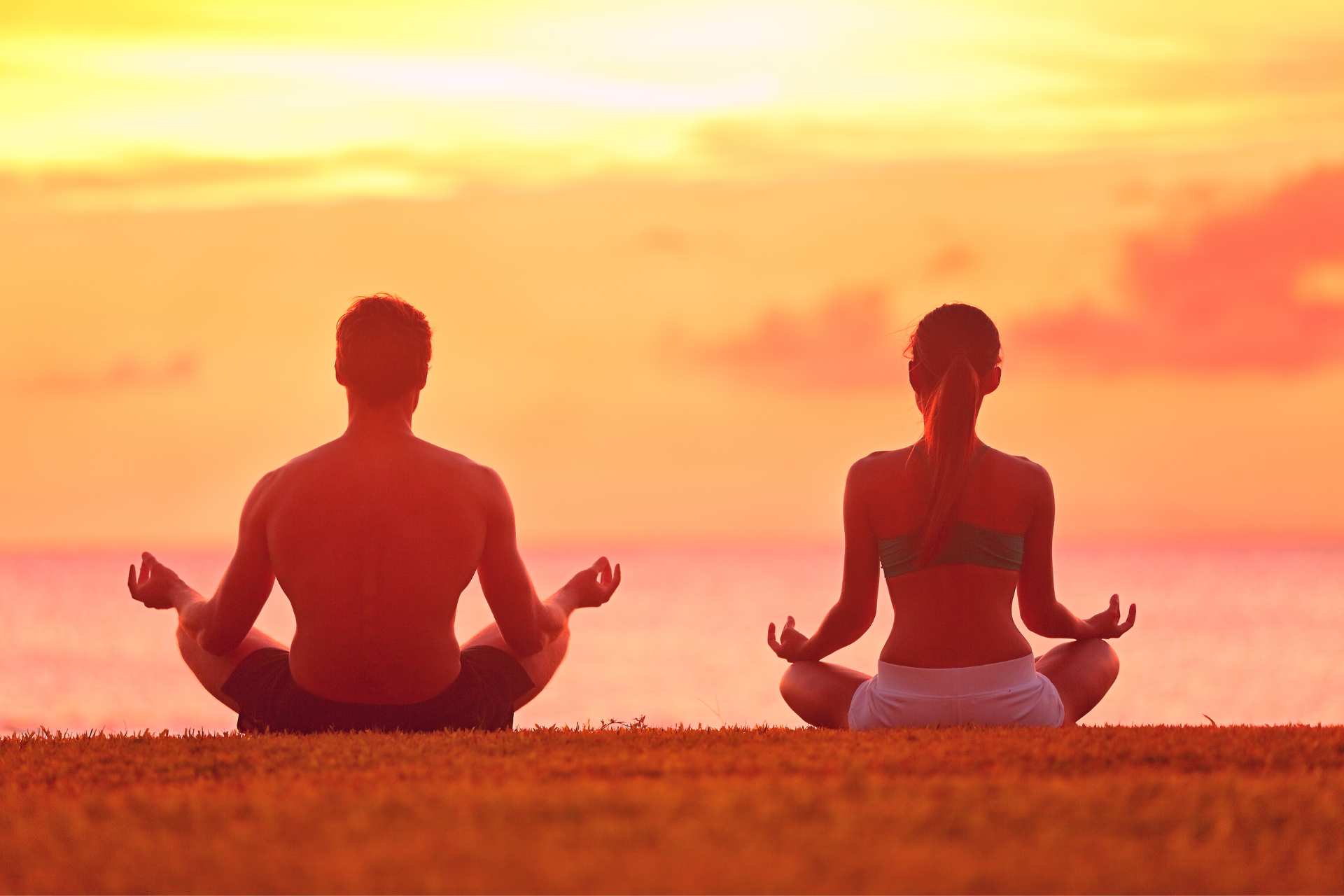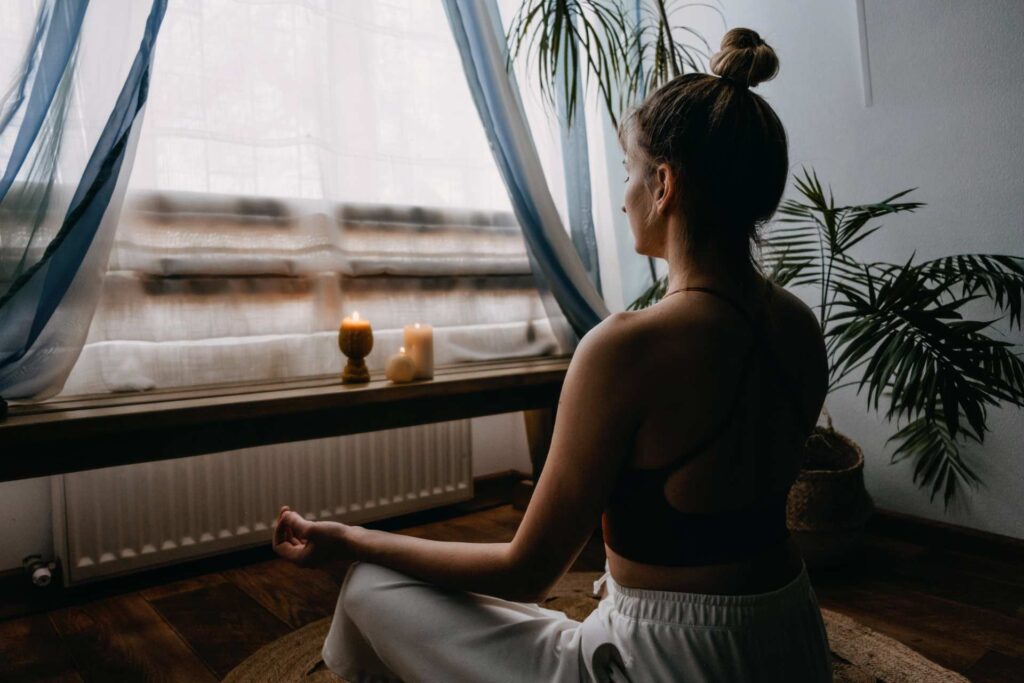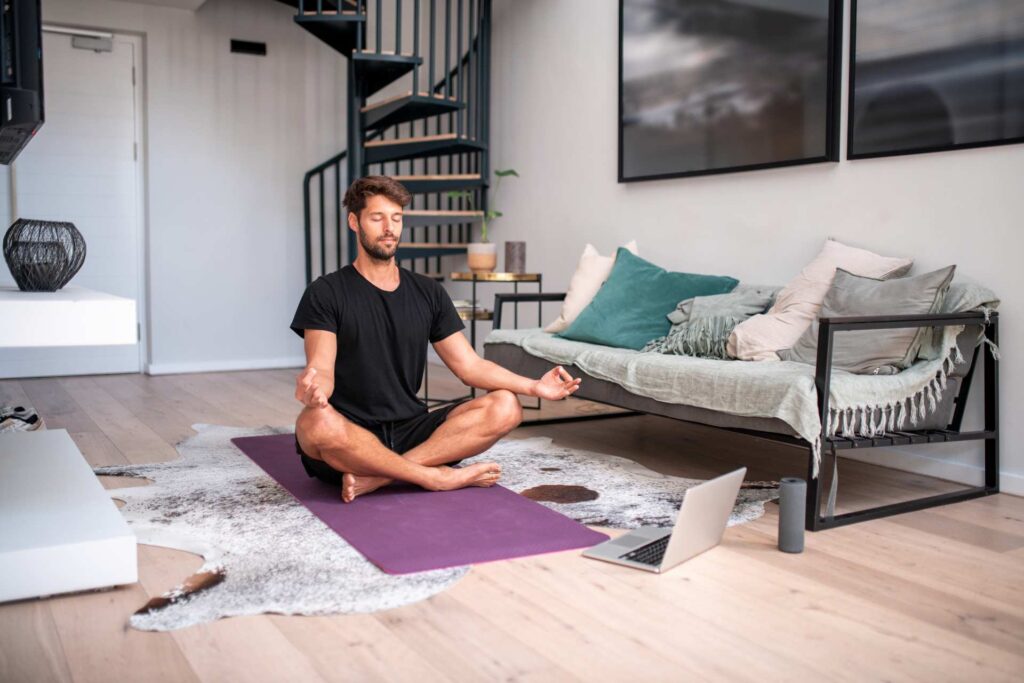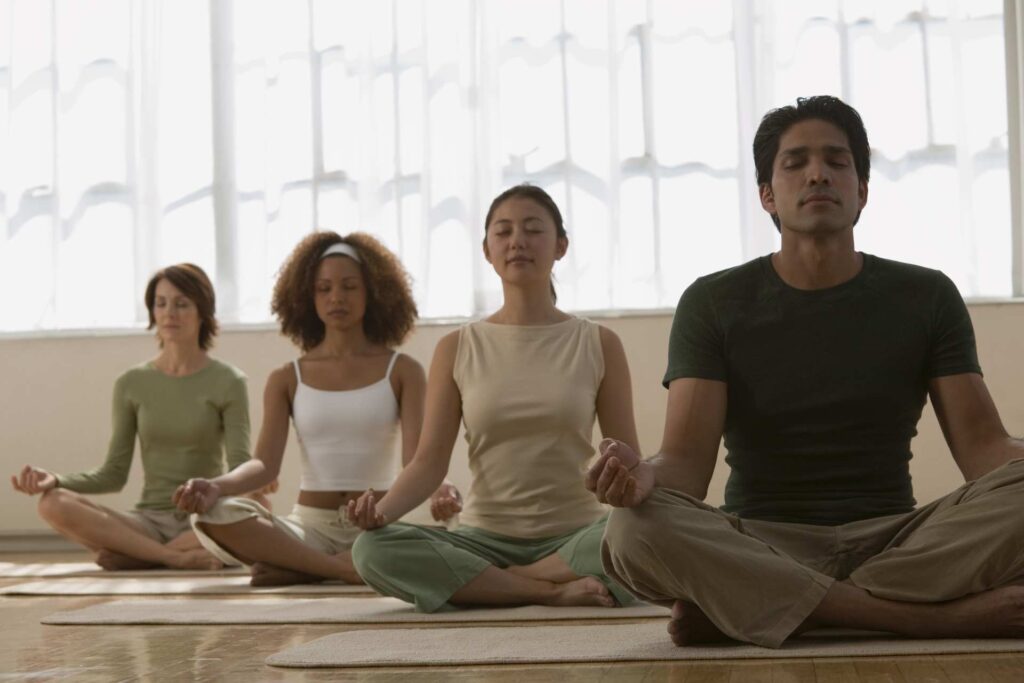
Meditation is a skill anyone can pick up, no matter where you are or how noisy it is around you. It’s straightforward and involves some basic steps. Like any new skill, the more you practice meditation, the more at ease you’ll feel in your own thoughts.

You’ll quickly notice the perks of regular meditation. Studies have shown that meditation can significantly improve mental and physical wellbeing. Whether you’re aiming to reduce stress, sleep better, focus more, or enhance your relationships, each meditation session is a step towards healthier, happier mental habits.
By the end of this guide, you’ll have a good grasp of meditation basics and be ready to start your own practice.
What Exactly is Meditation?
Meditation is all about intentionally spending time with your thoughts. It involves taking a break from the hustle and bustle, sitting down, breathing, and focusing on your breath. This helps increase awareness of your thoughts, fosters self-compassion, and connects you with the present moment.

Meditation isn’t about silencing your thoughts and feelings; it’s about observing them without getting caught up. Think of your thoughts as traffic in your mind, constantly moving. Meditation teaches you to notice these thoughts without chasing or resisting them, and gently bring your focus back to your breath.
The more you practice, the easier it becomes to see thoughts as just that – thoughts. This helps you stay more present and engaged in your daily activities, from family time to work deadlines.
What Does Meditation Achieve?
Life can be tough and stressful. While we can’t control everything, we can change how we respond to life’s challenges. Meditation helps us see things more clearly, feel calmer, and be kinder to ourselves and others. It’s about being comfortable with your mind as it is.
Getting Started with Meditation
Meditation doesn’t require much to begin:
- Consistency is Key: Regular practice, even if it’s just a few minutes a day, can make a big difference. If you miss a day, no worries – just pick up where you left off.
- Anytime, Anywhere: You can meditate at any time that suits you, whether it’s morning, evening, or in between tasks.
- Short Sessions Work Wonders: Even a five-minute session is beneficial. As you get more comfortable, you can gradually increase your meditation time.
- Embrace Distractions: Don’t worry about finding a perfectly quiet space. If noises occur, acknowledge them and return your focus to your breath.
- Comfort is Key: Sit in a way that feels good for you, keeping your back straight and your body relaxed.
- Guided Meditation for Beginners: Starting with guided meditation can be helpful. Once you’re familiar, you can try meditating on your own.
Remember, there’s no right or wrong way to meditate. If you find it challenging at first, that’s completely normal.
What to Expect During Meditation
Your mind will wander, and that’s okay. The practice is about gently returning your focus to your breath. You might not feel anything specific, or you might experience a range of emotions. That’s all part of the process. If you find yourself fidgeting or trying too hard, simply notice these feelings and refocus on your breath.

A Great Starting Point: Body Scan Meditation
A body scan meditation is a fantastic way for beginners to connect with their bodies. It involves mentally scanning your body from head to toe, noticing how each part feels without judgment. This practice can help reduce stress and increase body awareness.
Sticking with Meditation
Remember your reasons for starting meditation. Whether it’s to feel happier, calmer, or more focused, keeping your intention in mind can motivate you to maintain your practice. And remember, there’s no pressure to be perfect. Just showing up for yourself is a great start.
So, take a deep breath, and let’s begin this journey of mindfulness together.


